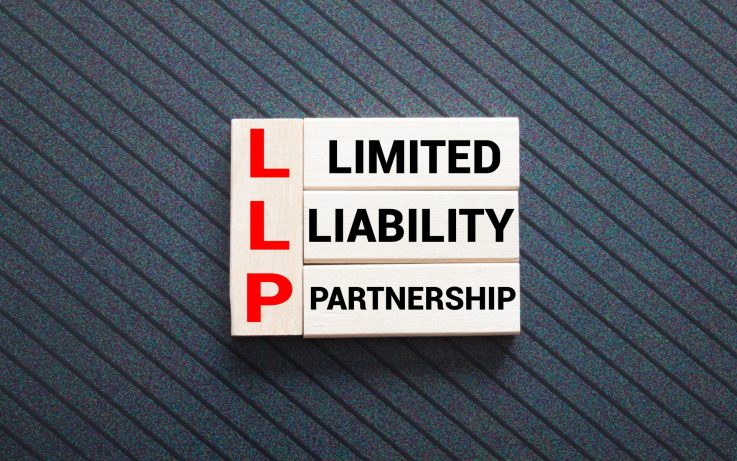Taxation for Limited company in UK

Setting up a company in the United Kingdom is a dream come true for a lot of entrepreneurs. This should not come as a surprise since UK businesses have an impeccable reputation around the world that mainly attracts both investors and clients. The flexibility of the UK taxation system is also a huge advantage. Your tax burden will be calculated based on the tax reports you submit for the relevant period. Note that the British financial year begins on 6 April and ends on 5 April next year.
Limited company and UK taxes
If favourable taxation is your main criterion when choosing an incorporation structure for your UK company, you should consider a private limited company, or Ltd. The share capital can be as little as £1. It is usually not more than £1,000 to avoid stamp duties when you decide to sell shares. A small-sized enterprise also benefits from audit exemption and simplified accounting. A company is classified as small-sized if at least two out of three requirements are met:
- Annual turnover is not more than £10.2 million;
- Maximum number of employees is 50;
- Balance sheet total is less than £5.1 million.
For more information, you need to contact tax consultants.
Corporation tax
From 1 April 2023, the UK corporation tax has gone up to 25%. The 19% rate remains for companies that turn over £50,000 or less.
If a UK business owns another UK company or an overseas company that pays its parent company dividends, this income will not be taxed under certain conditions. However, there are other important rules for small-sized enterprises. A professional tax consultant will be able to explain this to you in detail.
Tax reporting
According to UK law, every UK company must prepare and submit annual accounts to the Companies House. Based on these accounts, you must prepare a tax return with your corporation tax calculations and submit it to the HM Revenue & Customs (HMRC). Tax returns are filed at the end of the company’s financial year which corresponds to the last date of the month when the company was registered. In some cases, the financial year can be shifted. The company’s operation period is also considered. For example, a newly set-up company reports on its activities in a year after registration and submits its first tax return in one and a half years. The UK authorities value adherence to deadlines. If you fail to prepare the required documents by the set deadline, you will receive a fine that starts at £150.
If a limited company is registered by a non-UK tax resident, it will not have to pay a corporation tax since it will technically operate and receive income overseas.
In the UK, there is no tax on dividends for foreign nationals. The dividends of the company’s stakeholders who are non-UK tax residents are not taxed.
If the company’s owners are UK residents, they will have to pay tax on dividends.
VAT for UK company
All the goods and services provided in the UK are VAT taxed. If the cost of goods and services delivered by a company within 12 months exceeds £85,000, you must register your business for VAT. The standard VAT rate is 20%. However, for some goods, it can be lower, for example only 5%.
Your business does not have to be registered for VAT if:
- The company trades outside the UK, and the goods are not brought into the country;
- The company provides services only for overseas clients.
VAT reports must be submitted once in three months. However, the HMRC can request for them to be filed more often.
Double taxation
The UK has signed several double taxation treaties. This has simplified the exchange of taxation data between countries and made it more streamlined. Each treaty lists the requirements under which the company is relieved from double taxation completely. If required, any UK company may refer to these treaties.
Limited company and sole trader
A sole trader is a good alternative to a limited company if your business has one or several shareholders. The main differences are the following:
- A limited company is a legal entity responsible for its debt. A sole trader is liable for the business’s debts with all their assets;
- Big clients usually trust limited companies more than sole traders and most likely choose a legal entity.
Note that a sole trader cannot benefit from tax reliefs. An income tax in this case ranges from 20% to 45%. If your turnover is below £45,000, the income tax rate will be 20%. For turnover of £45,001 to £150,000, the rate is 40%, and for turnover above £150, 000, it is 45%. Sole traders cannot decrease their tax burden and national insurance contributions. Besides, they cannot defer their tax payments by leaving a part of the income in their account for later withdrawal. That’s why, a lot of entrepreneurs prefer to set up limited companies or switch from sole trader.
FAQs About limited company in the UK
What do I need to set up an Ltd in the UK?
An Ltd can be set up by a non-UK resident and offers several benefits. Here is the minimum information that you need to know to register an Ltd:
- The same person can be both a director and a shareholder of a UK company;
- At least one director must be an individual;
- Shareholders (individuals and legal entities) can be of any nationality and live anywhere;
- The company must have a UK registered address;
- Your actions must be accountable and transparent;
- Information about beneficiaries must be openly available.
The reputation of British businesses will allow you to work abroad. Experienced tax consultants will be able to advise you on all the matters concerning limited companies in the UK.
What taxes does a UK Ltd have to pay?
An Ltd in the UK must pay a corporation tax and sometimes VAT. If the company has employees on the payroll, it must make regular national insurance contributions (NICs) into the National Insurance fund for each employee based on their wage/salary. For more information about taxation of limited companies in the UK, contact experienced tax consultants.







